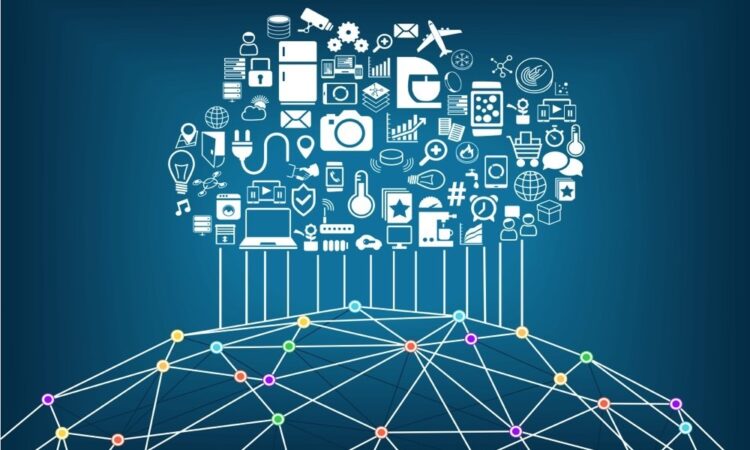
The Internet of Things (IoT) has transformed the way we interact with technology, connecting everyday objects to the Internet and enabling seamless communication and data exchange. While IoT is commonly associated with smart homes, industrial automation, and healthcare applications, there are several unusual and fascinating use cases that demonstrate the vast potential of IoT solutions.
In this blog, we will explore five such unique use cases that highlight the diverse applications of IoT across various industries. These examples will showcase the innovative ways IoT is being utilized to solve complex problems and enhance our daily lives.
Smart Agriculture: Optimizing Crop Cultivation
IoT solutions are revolutionizing the agriculture industry by enabling intelligent farming practices. Farmers can deploy IoT devices such as soil moisture sensors, weather stations, and drones to gather real-time data on soil conditions, weather patterns, and crop health. This data is then analyzed using an IoT platform, providing valuable insights that help optimize irrigation schedules, detect plant diseases, and maximize crop yields. By leveraging IoT solutions, farmers can make data-driven decisions, conserve resources, and enhance overall agricultural productivity.
Smart Waste Management: Efficient and Sustainable Waste Disposal
IoT is transforming waste management systems by enabling smart waste monitoring and collection. Smart bins equipped with sensors and communication modules can detect the fill level of waste containers in real time. This data is transmitted to a central IoT platform, which optimizes waste collection routes, reduces fuel consumption, and improves operational efficiency. Smart waste management systems not only streamline waste collection processes but also promote sustainability by minimizing unnecessary pickups and reducing carbon emissions.
Wildlife Conservation: Protecting Endangered Species
IoT plays a significant role in wildlife conservation efforts by monitoring and protecting endangered species. IoT devices such as GPS trackers and sensors can be attached to animals to track their movements, study their behavior, and collect vital data for conservation research. This information helps conservationists understand animal habitats, migration patterns, and population dynamics, enabling them to implement targeted conservation strategies. IoT-powered wildlife conservation initiatives contribute to the preservation of biodiversity and the protection of fragile ecosystems.
Smart Parking: Easing Traffic Congestion
Parking can be a significant challenge in urban areas, leading to traffic congestion and frustration among drivers. IoT-based smart parking solutions address this problem by providing real-time information about parking availability. Smart sensors installed in parking spaces detect occupancy and transmit data to a central system, which then guides drivers to the nearest available parking spots. By reducing the time spent searching for parking, smart parking systems help alleviate traffic congestion, decrease carbon emissions, and improve the overall urban mobility experience.
Elderly Care: Enabling Independent Living
IoT solutions have great potential in the field of elderly care, enabling older adults to live independently while ensuring their safety and well-being. Smart home devices integrated with IoT technology can monitor activities of daily living, detect emergencies such as falls, and provide remote health monitoring capabilities. IoT platforms collect and analyze data from various sensors and devices, allowing caregivers and healthcare professionals to intervene when necessary and provide timely assistance. With IoT-enabled elderly care solutions, seniors can enjoy a higher quality of life while maintaining their independence and autonomy.
Conclusion
The Internet of Things continues to redefine the possibilities of technology, enabling innovative and unusual use cases across various industries. From optimizing crop cultivation in agriculture to protecting endangered species in wildlife conservation, IoT solutions offer limitless potential. Smart agriculture, smart waste management, wildlife conservation, smart parking, and elderly care are just a few examples of the unconventional applications of IoT. These use cases demonstrate how IoT solutions powered by robust IoT platforms can address complex challenges, enhance efficiency, promote sustainability, and improve the overall quality of life.
FAQs (Frequently Asked Questions)
Q: What is an IoT platform?
A: An IoT platform is a software solution that enables connecting, managing, and analyzing IoT devices and data. It provides the necessary tools and functionalities to collect, store, and process data from IoT devices, facilitating the development of IoT applications and services.
Q: How can IoT solutions benefit the agriculture industry?
A: IoT solutions in agriculture enable farmers to gather real-time data on soil conditions, weather patterns, and crop health. This data helps optimize irrigation schedules, detect plant diseases, and maximize crop yields. IoT solutions in agriculture promote efficient resource utilization, improve productivity, and support sustainable farming practices.
Q: How do IoT-based smart parking systems work?
A: Smart parking systems use sensors installed in parking spaces to detect occupancy. This information is transmitted to a central system, providing real-time parking availability data. Drivers can access this information through mobile applications or electronic signage, helping them find parking spaces quickly and reducing traffic congestion.
Q: How can IoT solutions contribute to wildlife conservation efforts?
A: IoT devices such as GPS trackers and sensors can be used to monitor endangered species, track their movements, and collect valuable data for conservation research. This data helps conservationists understand animal behavior, habitat preferences, and migration patterns, enabling them to implement targeted conservation strategies.
Q: What are the benefits of IoT-enabled elderly care solutions?
A: IoT-enabled elderly care solutions allow older adults to live independently while ensuring their safety and well-being. These solutions monitor activities of daily living, detect emergencies such as falls, and provide remote health monitoring capabilities. IoT-enabled elderly care promotes independence, timely assistance, and peace of mind for both seniors and their caregivers.
